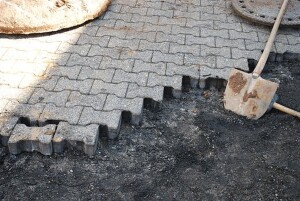Strong evidence points to the fist light rail line in the city as the onset of the phenomenon.
 Jerusalem, February 28 – A new study has found that residents of Israel’s capital show a better-than-average capacity for critical thinking and hesitancy to accept information at face value without supporting evidence, born, the researchers have concluded, of everyday interfaces with posted schedules for the completion of infrastructure projects that seldom, if ever, finish by the time announced.
Jerusalem, February 28 – A new study has found that residents of Israel’s capital show a better-than-average capacity for critical thinking and hesitancy to accept information at face value without supporting evidence, born, the researchers have concluded, of everyday interfaces with posted schedules for the completion of infrastructure projects that seldom, if ever, finish by the time announced.
A team of researchers from the University of Ariel conducted several large-scale studies of various populations in Israel to determine their relative performances on critical thinking tests, and found that Jerusalem denizens display the most robust results. A subsequent analysis determined the source of the aptitude: constant exposure to signs and public announcements that a given project – a housing development, a light rail line, new lighting and sewerage installation in the neighborhood, for example – will conclude by a certain date, and the date passing with said project nowhere near its successful conclusion. The study appeared in the March issue of the journal JADED.
“Our initial findings showed a sharp difference in tendency toward skepticism of received information between respondents from Jerusalem and respondents from elsewhere in the country,” the authors wrote. “To understand this phenomenon, we conducted a set of follow-up studies aimed at isolating what produced such a unique critical-thinking profile. The outcome of the follow-ups was stark: more than ninety percent of the aggregate four thousand respondents cited as information they do not trust initially the posted completion dates for infrastructure work.”
“Strong evidence points to the fist light rail line in the city as the onset of the phenomenon,” the article continued. “In the early 2000s, the municipality touted its forecast for the completion of the current line as late 2004. In fact the line began operating only in 2012. Other projects certainly experienced delays, and Jerusalem is hardly unique in that respect. However, no city outside Israel had previously encountered such a blatant instance of it, and the vast majority of respondents were old enough to remember the experience.”
Researchers acknowledged other factors as contributing to Jerusalem’s profile. “Jerusalem has more than a fair share of immigrants,” they noted. “Certainly anyone from Boston and its Big Dig project will bring with them a healthy skepticism of public works completion forecasts. The same of course holds true for anyone who ever tried to move on FDR Drive in Manhattan, or knows the ignominious history of the Second Avenue subway line. But those numbers are marginal in the larger Jerusalem population.”
Please support our work through Patreon.
Buy In The Biblical Sense: https://www.amazon.com/dp/B0B92QYWSL




